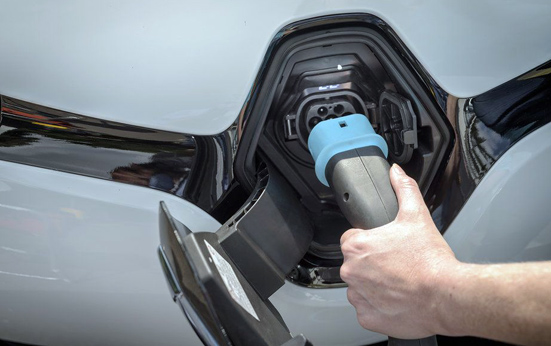Kaluza brings flexibility for V2G deployment
- September 14, 2020
- Steve Rogerson

Intelligent energy firm Kaluza is adding flexibility to UK utility Western Power Distribution (WPD) using a mix of domestic storage and transport devices including domestic vehicle-to-grid (V2G) chargers.
Through integration with the Nodes energy market, Kaluza will provide an automated, M2M service delivery, enabling smarter, more dynamic control of the grid.
The platform already provides a paid flex service to WPD through the intelligent optimisation of Sonnen battery charging and discharging. Now, as part of WPD’s IntraFlex project, Kaluza is adding domestic electric vehicle (EV) smart charging and V2G optimisation within a single, combined service across domestic storage and transport devices.
The platform will shift EV charging away from times of high demand, so the devices import energy when it is cheapest and greenest for end users and the grid. In addition, the V2G chargers and Sonnen batteries will support the network with available export capacity to help the grid during high peaks in demand.
Optimising a combination of domestic devices for flexibility has never previously been achieved and demonstrates a way forward to a scalable flex market at all levels of the energy system. The service also marks a milestone for domestic V2G chargers as Kaluza harnesses their collective power to provide local flexibility for the first time.
The service leverages AI technology to provide a fully automated, M2M operation with no need for manual intervention. By integrating with Nodes market, the platform can participate in Nodes ShortFlex trading where flexibility is traded much closer to real time than the standard week or month-ahead timeframes. This is more accurate when forecasting the availability of local flexibility and enables more effective use of flexible devices on a daily basis.
“Every day we take a step closer to realising a smarter energy system, but the launch of this service is a huge leap forward,” said Conor Maher-McWilliams, head of flexibility at Kaluza. “While flexible, low carbon technologies become increasingly prevalent in people’s homes, there hasn’t been an effective way of coordinating charging across different types of devices to support grid balancing. This service changes that and will enable truly scalable flexibility so that millions of devices can store green and affordable energy in the future.”
He said integrating domestic V2G into this service was in itself an industry triumph.
“It demonstrates V2G’s versatile value in boosting grid resilience as part of a diverse flexibility offering, while enabling customers to buy and sell their own renewable energy,” he said. “We look forward to our continued collaboration with WPD and Nodes as we bring the promise of flexibility to life with cutting edge technology.”
WPD is the distribution network operator for the Midlands, south-west England and south Wales. It is responsible for delivering electricity to approximately 7.9 million users and invests around £1bn on its network annually.
“Our IntraFlex project and the work Kaluza and Nodes are doing are bringing tomorrow’s world to us today,” said Roger Hey, projects manager at WPD. “For us as a network operator, this project enables us to understand how all of these technologies will work together. For customers it brings forward the prospect of cleaner and cheaper energy in a way that can be replicated across the country.”
Nodes is an independent marketplace for sustainable energy where grid owners, producers and consumers of energy can trade decentralised flexibility and energy. Its vision is to build Europe’s most customer-centric, integrated energy marketplace to unlock the value of local flexible power resources and support the drive to a sustainable, emission free future.
“The importance of creating a market for trading flexibility is of paramount importance if we are to truly unlock the value of flexibility and deliver our goal of creating a more sustainable future with greater social welfare,” said Enno Böttcher, CEO at Nodes. “Nodes has believed from the outset that a continuous market for trading flexibility will help deliver this goal. By creating a market where different types of flexibility can compete on a level playing field, the right type of flexibility can be procured at the right price, in the right location at the right time to ease congestion.”




